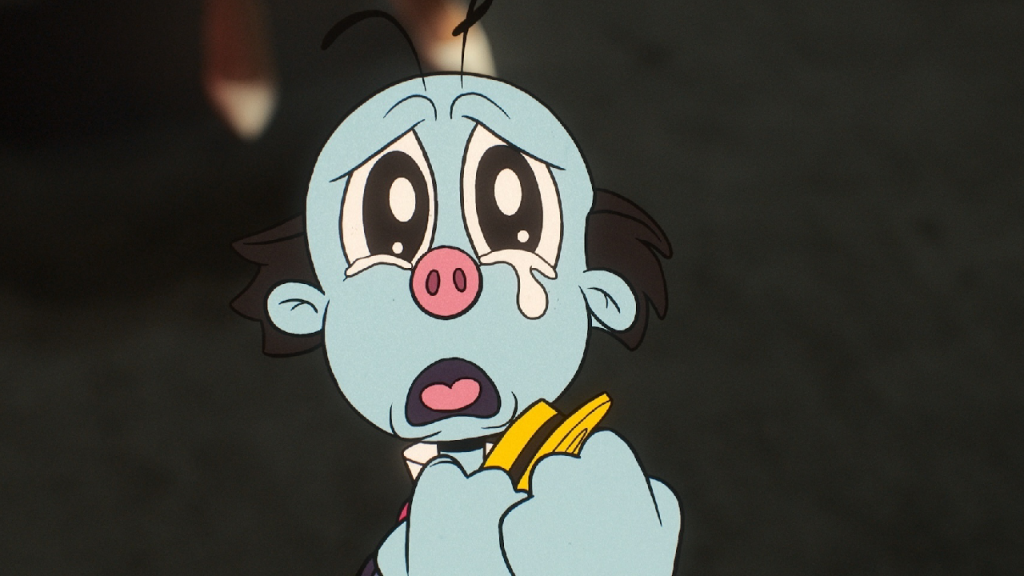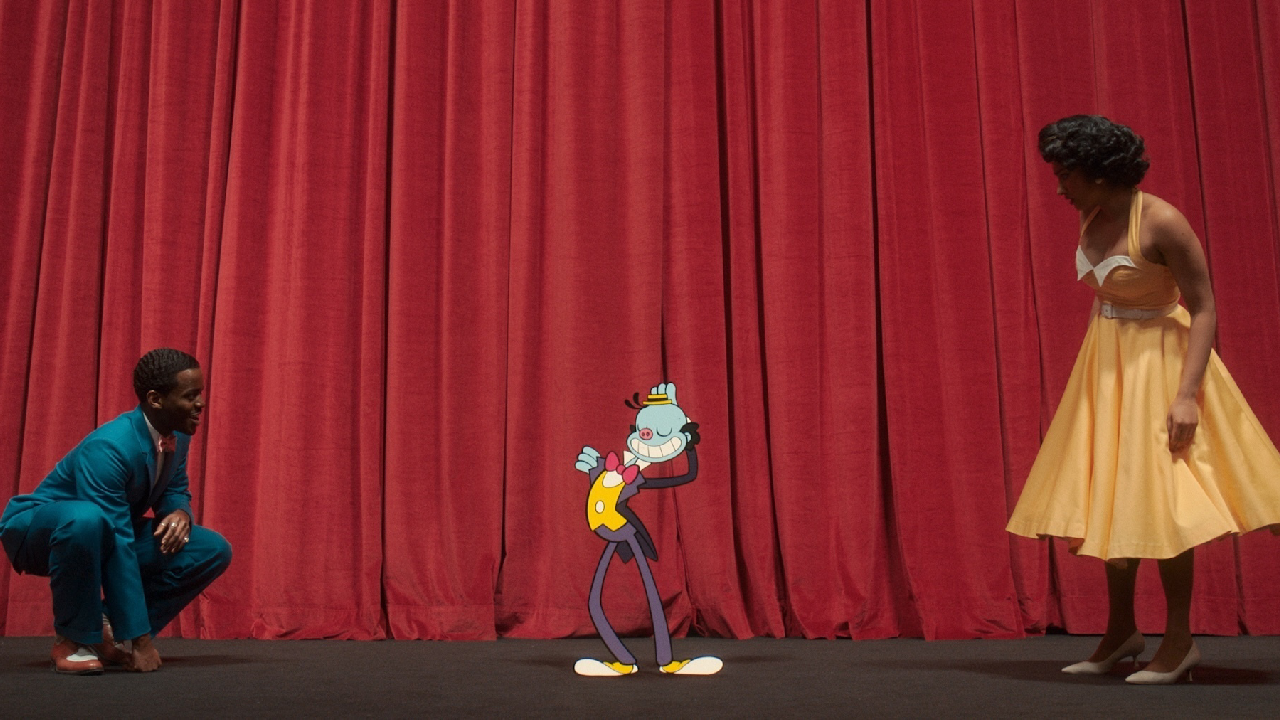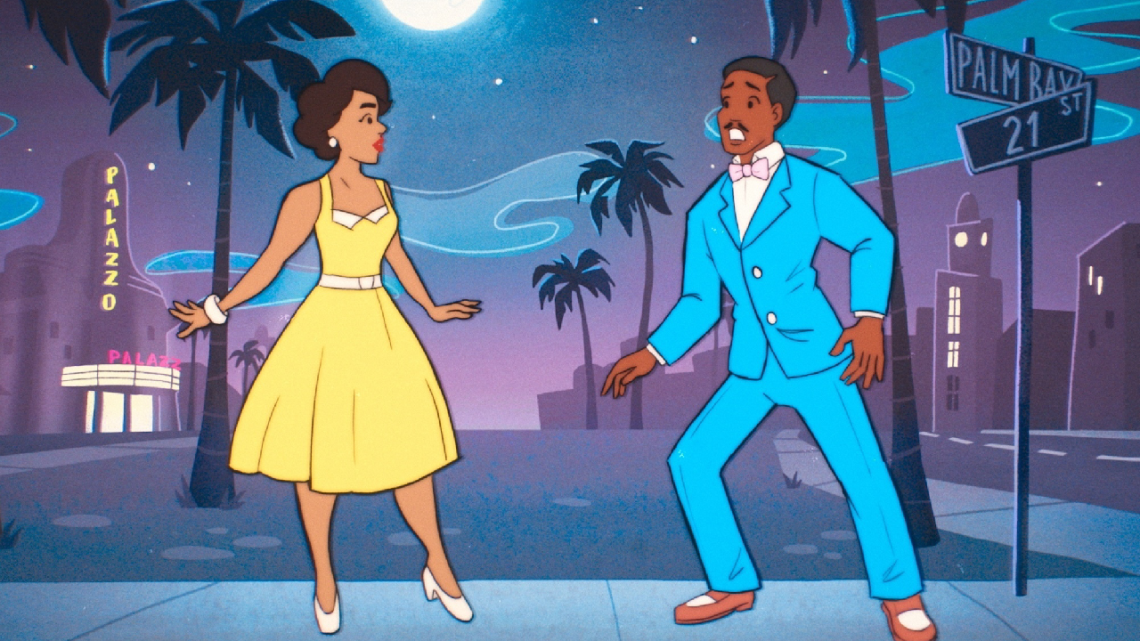Spoilers ahead!
Lux is the episode of this season that I was looking forward to the most. The little we had seen about the episode prior to release teased an episode of Doctor Who that had the potential to go down in the pantheon of incredible and beloved episodes.
It’s an episode that takes the show in interesting directions, exploring new concepts, while somewhat unexpectedly, being an episode that moves forward plot elements from the previous season and 60th anniversary specials.
Thankfully, Lux certainly does manage to live up to the expectations set forth by its premise, though I imagine it will likely find itself being somewhat more divisive within the fanbase than the episodes it finds itself peers with such as Blink and Heaven Sent.
Following on from last week, The Doctor and Belinda land in 1952 Miami, and discover a chained up cinema where 15 people mysteriously went missing three months ago.
Ring, Ring
As seen in the episode’s cold open, these disappearances were the work of Mr. Ring-a-Ding, the main character of a short cartoon played before the feature film. Mr. Ring-a-Ding, voiced by Alan Cumming, is an interesting and unique villain for Doctor Who and provides the basis for the episode’s foray into conceptual sci-fi elements.
Lux, is an episode that dares to take the show fully into meta concepts, taking the logical next step of elements introduced in last season’s The Devil’s Chord and taking clear inspiration from the mind-bending plots of Black Mirror. The vast majority of it is pulled off surprisingly well, though there is one big meta, fourth wall breaking element that had been leaked, that I ultimately thought fell a little flat.
If you’ve heard the leak, or seen the episode, you’ll know exactly which moment I’m talking about: The Doctor Who fans.
In this scene The Doctor and Belinda find themselves inside the living room of Doctor Who fans watching the current episode of Doctor Who, they have a brief conversation about the show before The Doctor and Belinda move on. It’s a concept that you’re either excited for once you hear about it, or you’re apprehensive of.

Oh that’s meta
While I love a good dollop of meta in my media, I always feel like this kind of meta element ultimately just serves to be self-serving, a little cringey and never lives up to what the mind can conjure. In Lux, I felt that this moment lingered for a little too long and killed the tension of the episode. The Doctor and Belinda sit and have a cup of tea with some Doctor Who fans, they discuss favorite episodes and then clue-in the Doctor to the “obvious ending.” It had the impression of a much bigger moment than it actually was for me, reminding me of moments in No Way Home, where space had clearly been left to allow room for reactions; in these scenes if you aren’t losing your mind while they take place, they have an oddness to them.
I was rightly a little apprehensive about that moment when I heard the leaks and was hoping it either wouldn’t happen or would be a brief cut away or joke, but ultimately the way it was handled makes it an integral part of the episode. A moment that takes away from The Doctor as the hero that figures it all out and, by allowing that scene to call out some of the weaker elements of Russell T. Davies’ writing, it attempts to turn those weaker elements into clever plot points. All it did for me was highlight them further in an episode where I otherwise was having a good time and would have been far more willing to ignore any apparent flaws.
This though is the only issue I had with the episode, and it is likely going to be a moment that Doctor Who fans will debate over for a long time to come.

Alan “Mr. Ring-a-Ding” Cumming
Alan Cumming’s Mr. Ring-a-Ding was a delight of a villain. Following on from The Toymaker, The Maestro, and Sutekh as the latest member of the Pantheon that The Doctor has faced, it was a connection that I hadn’t seen coming. It immediately upped the stakes of the episode, while providing a new spin on the situation in The Doctor’s more confident reaction to facing a god. It felt like an important episode, one that would tie back into the finale and overall plot of Ncuti’s run as The Doctor.
There is always an element for a character as interesting as this, that you want to see more of them, and this was certainly the case for this episode, but Mr. Ring-a-Ding’s presence was never-the-less always felt.
While Mr. Ring-a-Ding is present in the story, there is a constant sense of tension and foreboding. His level as a threat has been set up clearly and he proves himself capable of living up to it. As not only a cartoon, but a god, he is capable of interacting with the world in a manner that defies the usual limitations of foes and does so with the whimsy of a Disney-esque, 1930s style animation.
The concept of the episode also allows the show to play visually. We see The Doctor, Belinda and Mr. Ring-a-Ding in a number of different animation styles, and representations of the mechanics of film. It’s a visual treat and unique imagery for the show and really stands out as something new and special but importantly doesn’t out stay it’s welcome.
Mr. Ring-a-Ding is a character that other Doctor Who media will have a field day with, there’s so much more room here to tell so many interesting stories, even in other media. While there is a conceit that his abilities are tied to light, Mr. Ring-a-Ding is an irresistible villain brought to life by Alan Cumming’s superb voice work.
This episode also cleverly expands The Doctor and Belinda’s relationship, tying their bonding cleverly to the plot in a way that makes their quick connection feel far more authentic than the previous seasons off-screen time jump to explain The Doctor and Ruby’s close relationship.

Final verdict
Overall, Lux is a stand-out episode of Doctor Who, it takes a bold stab at doing a concept that is risky, interesting, and very Doctor Who. It definitely manages to pull it off in a visually interesting manner and for the most part, manages to handle the delicate balance required to include meta elements in a way that doesn’t derail the episode. While the episode handles the majority of it’s meta elements well, and is overall fantastic, the big meta show-stopper moment is a swing and a miss for me, and it’s due to this moment that the episode doesn’t manage to surpass any of the previous episodes that could be considered all-time bests. For me, that title still goes to either Heaven Sent or World Enough and Time, depending on my mood.
The Review
SUPERB









